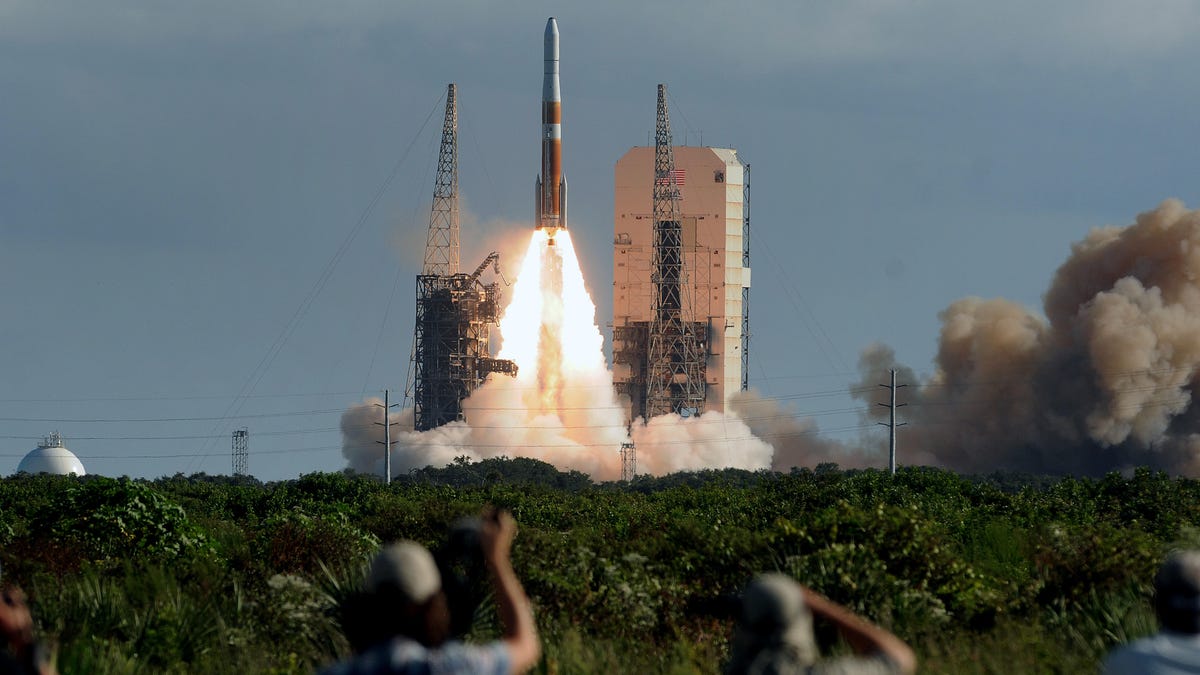United Launch Alliance's Delta IV rocket takes off for final flight
It carried a GPS III satellite for the US Air Force.

The United Launch Alliance's Delta IV Medium rocket carried the second GPS III satellite to orbit for the US Air Force.
The United Launch Alliance's Delta IV Medium rocket took off for its 29th and final flight from Cape Canaveral Air Force Station on Thursday. The rocket carried the US Air Force's second GPS III satellite, built by Lockheed Martin.
"Another spectacular launch for United Launch Alliance this morning!" the Kennedy Space Center Visitor Complex tweeted Thursday. "Marking the 29th and final flight of the #DeltaIV Medium rocket, how did you #LookUp for the #GPSIIISV02 mission?"
Another spectacular launch for United Launch Alliance this morning! 🚀
— Kennedy Space Center Visitor Complex (@ExploreSpaceKSC) August 22, 2019
Marking the 29th and final flight of the #DeltaIV Medium rocket, how did you #LookUp for the #GPSIIISV02 mission? pic.twitter.com/9bU9EN1NmJ
Around two hours after launch, Air Force and Lockheed Martin engineers said they had full control of GPS III Space Vehicle 02 (GPS III SV02) soon after its separation from the United Launch Alliance Delta IV rocket booster, Lockheed Martin said in a release. The satellite is responding to commands and is using its own internal propulsion system to climb toward its orbit around 12,550 miles above the earth.
"In the days ahead, we'll finish orbit raising to our operational slot and then send the satellite commands telling it to deploy its solar arrays and antennas," Johnathon Caldwell, Lockheed Martin Space's vice president for navigation systems, said in the release. "Once we are set up, we'll begin on-orbit checkout and tests, including extensive signals testing with our advanced navigation payload."
GPS III SV02 is designed to help the Air Force modernize today's network of GPS satellites with new capabilities and tech. GPS III satellites offer three times greater accuracy, according to the release.

